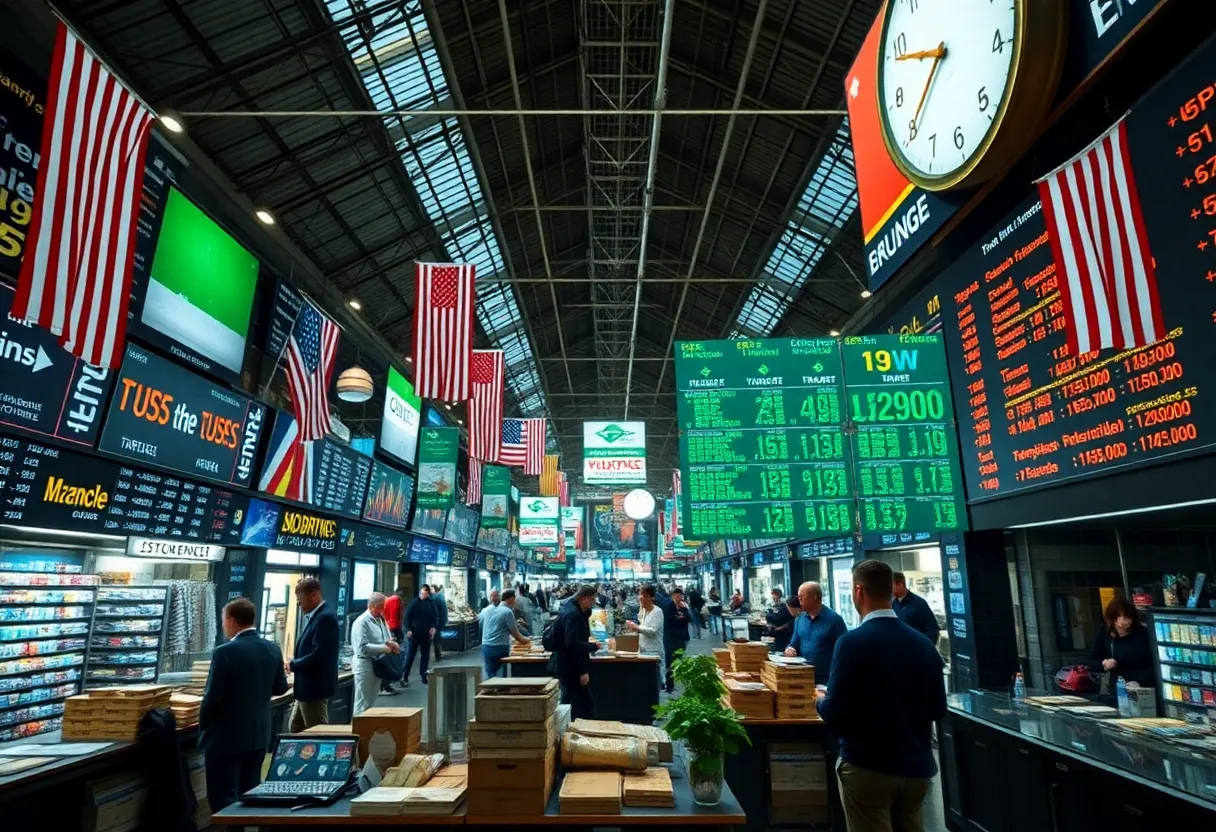

Global Market Reaction to Trump's Tariff
President Trump’s new 10% baseline tariff on nearly all imports has unleashed chaos in global markets, leading to significant losses in stock indices worldwide. Investors brace for further repercussions as fears of a trade war escalate. China has retaliated with plans for additional tariffs, raising alarms about economic stability and potential consumer price increases. Analysts warn this move could spark a recession and further dip global growth, with the future of international trade hanging in the balance.
In a bold move that has sent shockwaves through the global economy, President Trump’s new 10% baseline tariff on nearly all imported goods officially took effect early Saturday morning. While this might seem just another day in America, the **implications of this decision** have prompted some serious market jitters and raises questions about the future of international trade.
As the world woke up to the news, stock markets around the globe were hit hard. Sentiment turned negative as investors reacted to fears regarding the economic impact of an escalating trade war. The massive sell-off wiped trillions off the value of major companies, marking a historic plunge in major indices. For instance, the U.K.’s FTSE 100 index dropped by 313 points, which is a staggering 3.7% decline—the largest single-day drop in over two years!
Markets in Japan were not spared either, with the Nikkei index falling nearly 3%. Meanwhile, major European indices mirrored the struggle, experiencing falls of approximately 3.7%. Investors were bracing for even more turbulence as expectations indicated that indices like the S&P 500 and Dow Jones would likely slide further upon reopening. Even the tech-heavy Nasdaq index took a hit, plunging almost 6%, creating ripples across the banking, industrials, and energy sectors.
In response to the tariffs, China wasted no time in asserting its stance, accusing the U.S. of bullying and announcing a retaliatory plan to impose additional tariffs of 34% on all U.S. goods starting April 10. This retaliatory move understandably rattled markets even further and left many wondering where this tit-for-tat trade battle would end.
Global analysts are in agreement that these tariffs pose a significant risk to economic stability. Remarks from financial institutions like the International Monetary Fund (IMF) and leading banks have raised red flags. Analysts from both JPMorgan and Deutsche Bank have chimed in, echoing fears of a possible recession in the U.S. Furthermore, the tariffs are expected to bring about a systemic threat that could spike inflation rates and could lead to potential job losses in various sectors.
It has been reported that the new U.S. tariffs could represent a staggering $660 billion tax increase for American consumers and businesses alike. This outcome could potentially lead to increased prices at the grocery store and other essential places of commerce. Not just a domestic worry, these tariffs are projected to have an adverse effect on global growth, possibly dipping below 2% for the year.
In light of these developments, the EU has indicated they are considering potential countermeasures as they echo sentiments of retaliatory action. Unemployment rates in both the EU and the U.K. could see an uptick as the repercussions of Trump’s tariffs start manifesting.
The implementation of these tariffs has marked a radical move away from the post-World War II paradigm of collaborative tariff rates, resulting in significant alterations in global trade dynamics. While countries like Canada and Mexico remain exempt due to previous agreements, Trump’s commitment to this policy direction speaks volumes about his intent to reshape the economic landscape, even in the face of considerable backlash.
As the dust begins to settle, the reality remains that the world is watching closely. The unfolding fallout from these actions promises to keep economists and everyday citizens alike engaged in discussions about the future and the role of tariffs in our increasingly interconnected global economy.
News Summary WPLG-TV, known as Local 10 in Miami, announces the end of its nearly…
News Summary A new 24-story residential project proposed by Joe Acquisitions in Miami's Allapattah neighborhood…
News Summary Trawick International, a leading travel insurance company, has officially opened its new headquarters…
News Summary WalletHub's recent report highlights Florida as a top state for entrepreneurs, showcasing cities…
News Summary A tragic shooting in Murray Hill has left the Jacksonville community reeling. The…
News Summary Jacksonville's annual ‘Rendezvous on the Rooftop’ event, hosted by the Jacksonville Bar Association,…